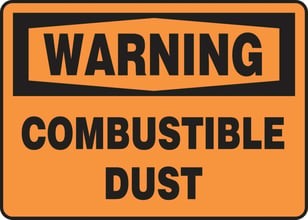 In a previous post we talked about the combustible dust fines over $100,000 that OSHA gave companies. Several years after the Combustible Dust National Emphasis Program was started in 2008 OSHA prepared a report detailing the number of combustible dust issues they had seen. Between 2008 and 2011 OSHA inspectors had given combustible dust fines for over 12,000 violations.
In a previous post we talked about the combustible dust fines over $100,000 that OSHA gave companies. Several years after the Combustible Dust National Emphasis Program was started in 2008 OSHA prepared a report detailing the number of combustible dust issues they had seen. Between 2008 and 2011 OSHA inspectors had given combustible dust fines for over 12,000 violations.
Despite these fines this has remained a common issue, any numerous companies receive fines for combustible dust after an OSHA inspection. The list below shows some of the combustible dust fines under $100,000 that were given to companies in the past few years, sorted highest to lowest.
-
- AL Solutions, a West Virginia metal recycling plant, was inspected after an explosion killed 3 workers in 2010. The inspection found that the plant did not have the proper safety equipment or processes to collect and dispose of combustible metal dusts. The company settled and agreed to pay a $100,000 civil penalty to the U.S. Environmental Protection Agency and a $97,000 penalty to the U.S. Department of Labor
-
- Pilgrim’s Pride, a poultry processor in Alabama, was cited for allowing combustible grain dust to accumulate even though there was a housekeeping program in place to manage the dust. The housekeeping program was not being followed, which allowed potentially explosive dust to come in contact with electrical components and heat sources. The company was given fines totaling $85,000.
-
- AGrowStar LLC, a grain handling facility in Wisconsin, was inspected after OSHA received an anonymous complaint about working conditions. The company was given 20 serious violations for allowing accumulations of combustible dust, explosion and fire hazards, and other safety violations. Proposed penalties for their violations totaled $74,375.
An example of why using cleaning contractors who are trained in combustible dust remediation and who use the properly certified equipment is essential:
-
- An industrial cleaning contractor received citations from OSHA when they failed to ground the equipment they were using to vacuum combustible dust. If it isn’t grounded, the vacuum can actually become an explosion risk during the process of cleaning. This failure to follow combustible dust cleaning standards resulted in a $70,700 proposed penalty from OSHA.
-
- Portage Precision Polymers, a rubber products manufacturer in Ohio, was inspected after a complaint was submitted about them. The inspection found serious violations for accumulations of combustible rubber dust, with 15 citations adding up to penalties of $61,600
Total Cost of Penalties for these companies:$391,675
This is money that was wasted by these companies simply because they refused to properly clean combustible dust.

